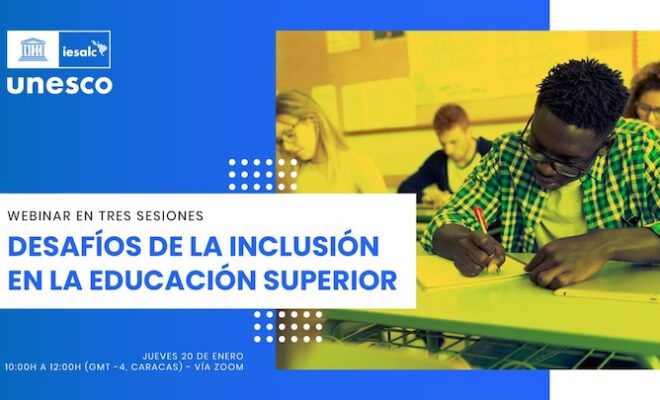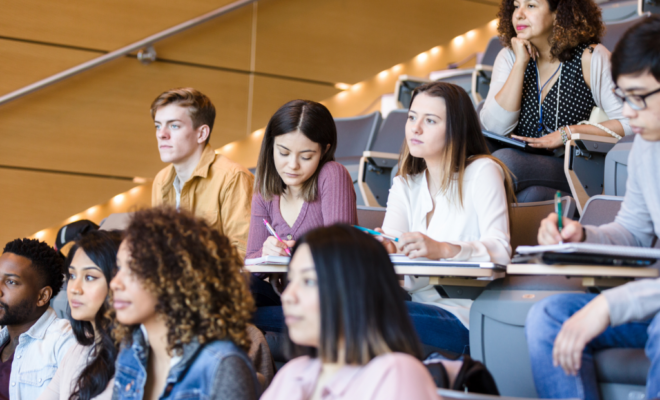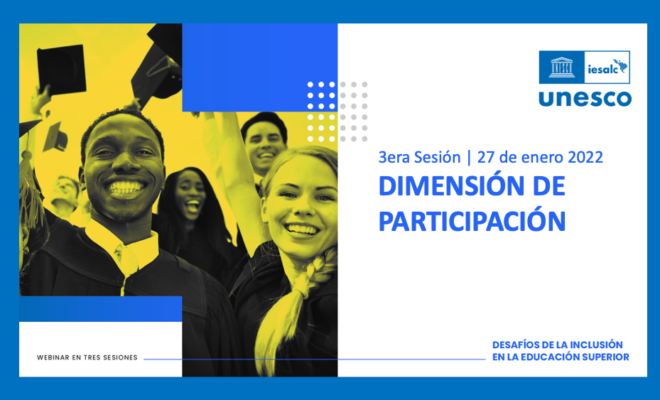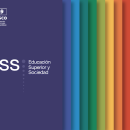One Caribbean Solutions: Post Crisis Strategic Partnership and Next Steps for Reopening Universities
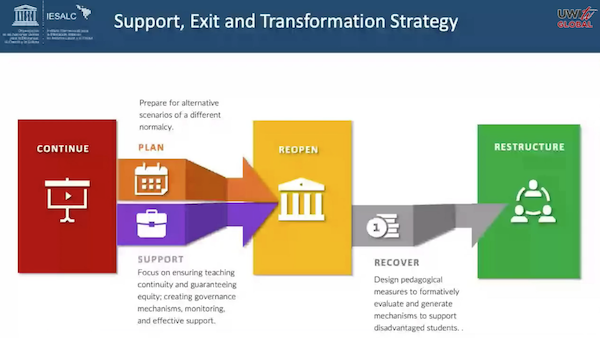
Myriam Moïse, Secretary-General of Universities Caribbean and Associate Professor at the Université des Antilles (Martinique & Guadeloupe), was the moderator of the forum One Caribbean Solutions: Post Crisis Strategic Partnership and Next Steps for Reopening Universities carried out by Universities Caribbean in partnership with the University of the West Indies (The UWI). At the event the agreement between Universities Caribbean and Agence Universitaire de la Francophonie was signed, together with the debate on the recommendations for the reopening of universities facilitated by the UNESCO International Institute for Higher Education in Latin America and the Caribe (IESALC).
After Moïse’s presentation, spoke the President of Universities Caribbean and Vice-Chancellor of the University of the West Indies (The UWI), Professor Sir Hilary Beckles, who emphasized the importance of evaluating the quality of higher education in the face of the pandemic that is currently being fought. “We are met, because it´s clear to us that the one Caribbean approach to all our development and challenges is indeed the right approach”. Sir Beckles reminded the audience that , according to UNESCO, the Caribbean has the lowest enrollment in higher education in the hemisphere.“This is the moment of the universities of the region to rise and represent the intelectual mission as nations builders committed to the advancement of humanities at its finest, it is the time for the university to rise its capacity, it is the moment of its greatest vulnerability and also the time for its relevance”.
This forum witnessed the agreement reached and signed by the representatives of the Universities Caribbean and Agence Universitaire de la Francophonie, which will allow to join efforts to strengthen researches, implementation of cooperation, developments, innovations projects, and many other initiatives to assure quality.
Professor Saulo Neiva – Director for the Caribbean Region, Agence Universitaire de la Francophonie (AUF) spoke about training projects on issues relevant for regional development, also mentioning the blue economy, climate change and impacts in the Caribbean, distance learning, and MOOCS on the problems of the region. “This alliance signed today will bring positive results. Work has already begun that will benefit the universities in the network“.
Before presenting the recommendations for the reopening of universities, the UNESCO International Institute for Higher Education in Latin America and the Caribbean (IESALC) Director, Dr. Francesc Pedró, celebrated the signed agreement, underlining its relevancy for the positive impact on the region. In his presentation Pedró insisted on the need and relevancy to attend Higher Education in front of pandemic COVID-19: “Higher Education is one important step toward social mobility. It can’t leave no one behind. We at UNESCO believe we can foresee how the reopening can happen. It is our duty to start planning for different scenarios, including the support to disadvantaged students. At UNESCO one of the principles of leaving no one behind”.
Planning the day after requires designing each step to take to make sure that, when reopening, you will not have to close again for no taking all the measures to guarantee safety for students and professors.
Watch the complete forum and experience this challenging opportunity.
“One Caribbean Solutions” virtual event
Agenda of the “One Caribbean Solutions” virtual event.
When: Wednesday, July 1st, 2020
Time: 12:00h (Venezuela time)
Language: English
Picture courtesy of UWI TV.
RELATED ITEMS

